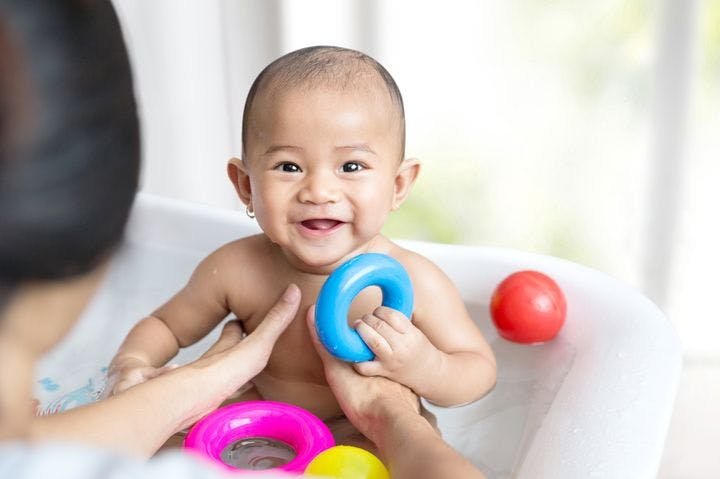Reviewed by Physician Tiang Sack Sing, Dr Nurul Aishah Jamaludin and Physician Kwek Le Yin
Newborn Baby Bath Time: Dos and Don’ts Every Parent Should Know
Published | 5 min read
Whether you consider yourself a new or seasoned parent, this list of what you should and shouldn't do during baby bath time might surprise you.
“A newborn’s body is very delicate,” says Traditional Chinese Medicine (TCM) Physician Tiang Sack Sing. “Their organs are still growing. How you take care of their hygiene through their showers will directly affect their health.”
Here, we list the dos and don’ts of newborn baby bath time to help improve your baby’s well-being.
Newborn Baby Bath Time: Dos and Don’ts
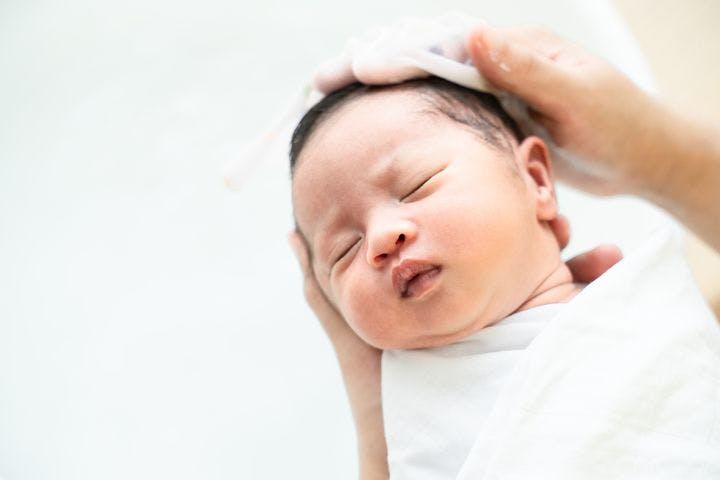
1. Delay bathing newborns to maintain skin integrity
The World Health Organization (WHO) recommends delaying
Studies have shown that
2. Give newborns a sponge bath instead of a tub bath
A sponge bath is recommended for babies until the stump of their umbilical cord falls off. This
3. Keep first baths as brief as possible
Keep newborn baby bath times short, for about five to 10 minutes. This not only minimises skin dryness but also helps prevent them from catching a cold.
4. Ensure the bath water is warm
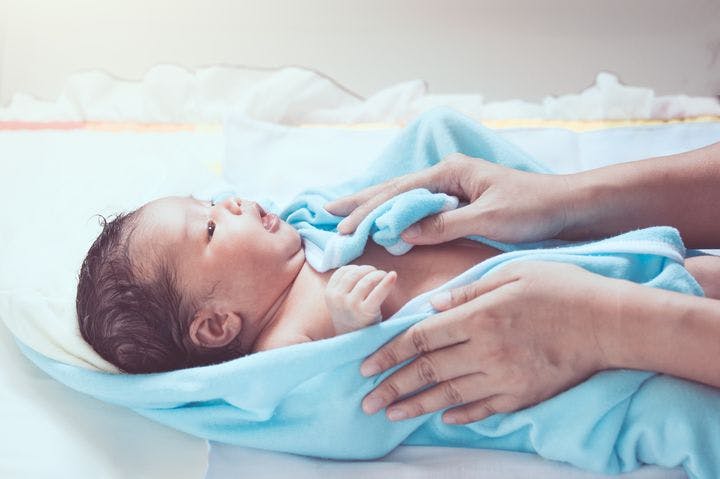
Due to your baby’s still-developing immune system, it’s important to keep the bathroom warm to help prevent them from catching a cold. Similarly, always ensure bath water is warm or lukewarm – test the water on the inside of your wrist to ensure the temperature is not too hot. Have a towel on hand nearby to quickly wrap them in after bathing.
5. Always support their head and neck
Always cradle your baby’s head and support the neck during baths. It’s best to prevent water from entering their ears as water can stay in the ear canal, which causes irritation and inflammation. You also shouldn’t leave your infant in the water unsupported or alone, even for a few seconds.
6. Use products specially formulated for babies
Bath and body products for babies contain mild formulations that won’t dry or irritate their delicate skin. Look for hypoallergenic products that
7. Avoid exposing your baby to cold air
“Gently dry your baby’s body, head, and belly button after a bath,” advises Physician Tiang. “Use a hairdryer to dry your baby’s belly button for a minute. Remember to turn the temperature setting to warm air before drying.”
“We don’t recommend using alcohol swabs to clean the belly button as the cold alcohol will cause air to enter the belly button, resulting in abdominal distension,” cautions Physician Tiang.
Instead, you can apply a few drops of Qing Cao herbal oil (青草油) or Yu Yee oil (如意油) onto your palms. Rub them together and gently massage your baby’s belly button and abdomen for one to two minutes. “This can prevent abdominal distension and aid in digestion. It can also help your baby sleep well at night,” she says. Use a belly band to cover your baby’s belly button before putting on their diaper and clothes.
You can also dip a cotton swab into some sesame oil and gently rub your baby’s fontanelle and belly button with it before the bath, suggests Physician Tiang. “This is an effective method to prevent abdominal distension, which can be caused by coldness during the shower.”
Medicinal Herbs to Enhance Newborn Baby Baths
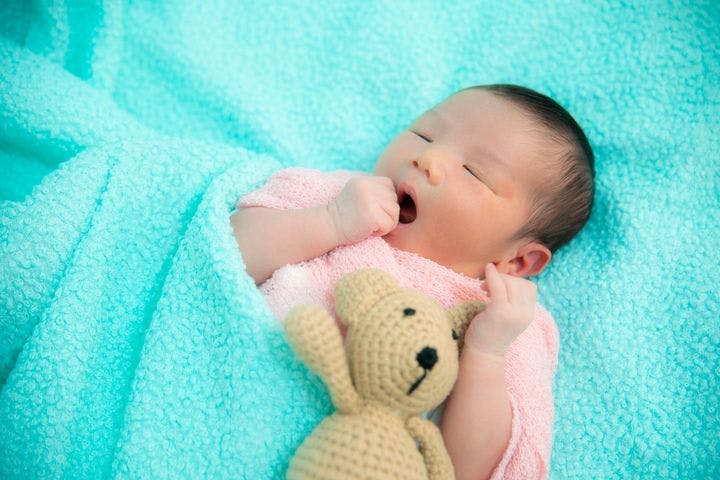
Some babies may experience Endogenous Heat, insomnia, eczema, or jaundice. These are what TCM practitioners refer to as foetal allergies and are considered to be directly related to the mother’s dietary habits and health during pregnancy.
According to Physician Tiang, when newborns experience this hyperactivity of Heatiness, they’ll find it hard to sleep, making them cry in the middle of the night. “If your baby’s crying is not due to abdominal distension or shock, then they’re most likely experiencing the symptoms of Heat.”
To help ease these symptoms, Physician Tiang suggests adding TCM herbs into your baby’s bath.
“Any issues related to Heat can be relieved by showering with the herbal bath formula for newborns. It can help remove Heat, and toxins from the skin,” she explains.
Newborn Baby Bath Time: A Great Way to Enhance Health
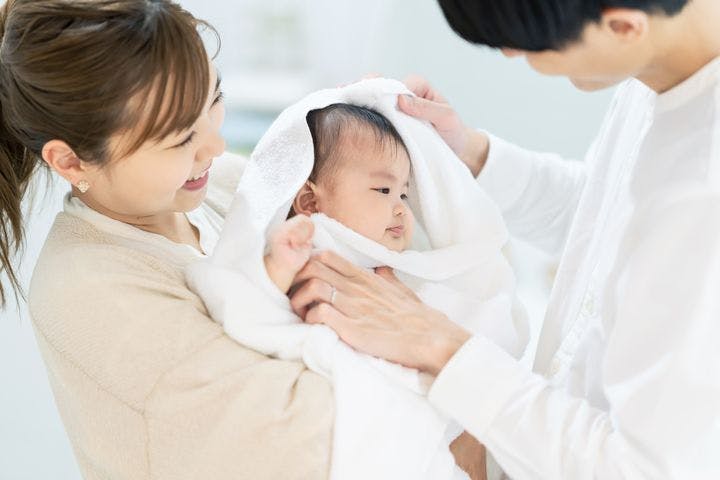
Newborn baby bath time can be a great way to bond with your little one. When done right, it can be a soothing experience to help newborn babies relax and it supports their health. “Using TCM sparingly. Showering your baby the correct way is very important to maintain hygiene,” notes Physician Tiang. “It can help reduce discomfort so they may grow up happy and healthy.”
Forward this article to your new mum friends to promote better baby health.
References
- John Hopkins All Children’s Hospital. N.d. Neonatal Infections. [Accessed on 5 September 2022]
- Infection and Immunity. 2006. Neonatal innate immunity to infectious agents. [Accessed on 5 September 2022]
- Immunity. 2017. Protecting the Newborn and Young Infant from Infectious Diseases: Lessons from Immune Ontogeny. [Accessed on 5 September 2022]
- American Academy of Pediatrics. 2020. Bathing Your Baby. [Accessed on 2 September 2022]
- WHO. N.d. WHO Recommendations on Newborn Health. [Accessed on 2 September 2022]
- StatPearls Publishing. 2021. Routine Newborn Care. [Accessed on 2 September 2022]
- Journal for Specialists in Pediatric Nursing. 2019. First bathing time of newborn infants after birth: A comparative analysis. [Accessed on 5 September 2022]
- NationwideChildrensOrg. 2022. Bathing Your Baby. [Accessed on 2 September 2022]
- Medline Plus. Reviewed 2020. Bathing an Infant. [Accessed on 2 September 2022]
- Stanford Children. Bathing and Skin Care for The Newborn. [Accessed on 2 September 2022]
- Research Review. 2019. Evidenced-based guidelines for infant bathing. [Accessed on 2 September 2022]
- BMC Research Notes. 2020. Newborn’s first bath: any preferred timing? A pilot study from Lebanon. [Accessed on 6 September 2022]
Share this article on

